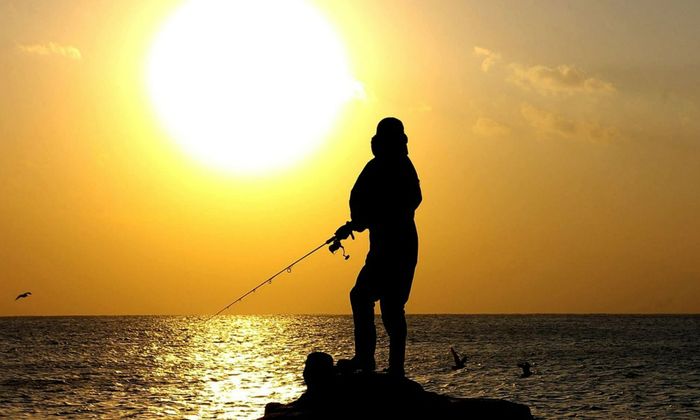How Fishing Helps Fight Depression
Learn more about how you can fight depression and other mental health concerns with fishing.

Fishing is a great outdoor activity that people can enjoy regardless of age or gender. But apart from being a challenging sport and an opportunity to commune with nature, fishing can be a soothing balm to the soul. You may have experienced this firsthand – the inexplicable joy you get by simply sitting on a riverbank, casting a line, patiently waiting for a bite, and taking a moment to bask in the scenic beauty of your surroundings. So if you’ve been feeling down and out lately, perhaps this is your wake-up call – time to grab your fishing gear and head out to your nearest fishing hole.
You’re probably thinking – yes, fishing is great, but can it help with my mental health? Yes, it can! According to recent studies on fishing and depression and how the sport can help combat this mental health condition. In this article, we'll look at how fishing can improve our mental health and overall well-being:

1. An Enjoyable Way to Get Some Vitamin D
Apart from keeping our bones and teeth in good condition, Vitamin D strengthens our immune system, aids physical recovery, and is essential in the fight against depression and other mental health conditions. Being exposed to the sun while fishing is one of the most enjoyable ways to obtain it. Be sure to wear some sun protection, ideally a sunscreen with SPF 50.

2. An Effective Form of Relaxation
Being surrounded by nature is indeed relaxing, and we have scientific evidence to show exactly why. Studies published in the BioScience Journal and from the University of Michigan attest to the many mental health benefits. Being in or near water has many healing benefits, thanks to the negative ions in the air that can vastly improve your mood and help lower your stress and anxiety. The surrounding greenery also adds to the healing effect, based on studies showing the physiological and psychological benefits of exposure to green environments. So whether you catch anything or not on your next fishing trip, you’ll still be getting something out of the journey that can have lasting effects on your mental health.
3. A Fantastic Way to Improve One’s Concentration and Attention Span
Fishing is a sport that requires great patience and concentration. It’s built into the sport itself as it requires a great deal of mindfulness, especially if you’re angling for a specific catch. For people struggling with anxiety and depression, fishing can be a great way to divert one’s focus from thoughts and other frustrations. Even for those simply struggling with burnout and the demands of modern life, fishing can offer a different type of mental health break. If you find yourself worried about your decreased attention span or battling ADHD, fishing can help you improve your concentration, especially if you do it regularly.
4. An Ideal Form of Low Impact Exercise
Exercise is a great way to induce endorphins, hormones linked to well-being and pain relief. And yet, many of us still don’t get enough of it. Good news: fishing is a form of exercise. That’s right – you can enjoy your hobby and get your recommended dose of regular exercise all at the same time. It may not seem like it, but fishing is a low-impact form of cardio exercise.
But if you truly want to level up the physicality of your fishing, then try more active techniques like fly fishing or jigging. Other ways you can add movement to your fishing trip? Hiking or biking to your fishing destination, kayak fishing, or even targeting a trophy fish with a lot of fight in it.
5. Improved Self-Esteem and Sportsmanship
Learning to fish can boost your self-esteem, which is essential for living a happier life. Anglers can vouch for this. Mastering the art of fishing takes hard work, but it is not impossible as long as you show up regularly and are willing to learn. And as you grow your skills and become more in tune with the water and nature, you will become more independent and confident. And, of course, nothing beats pulling in your first catch. There’s no way to shortcut your way to your first catch, which is why it feels even more fulfilling. And from there, you’ll find yourself motivated to set even more goals for yourself. Having a source of motivation is key to combating feelings of depression.
6. Sense of Community
Many anglers prefer the peace of solitary fishing, which can be a great way to relax and escape from the demands and frustrations of modern life. But fishing can also be a nice form of bonding with family and friends. Teaching your child or your friend how to fish, getting fishing tips from your parents or elders, or planning a whole family-friendly trip around fishing – are just some of the ways you can combine angling and bonding.

Apart from sharing the love for fishing with family and close friends, you can build a community with like-minded individuals online. There are many online forums dedicated to fishing. You can engage with them, learn from their own experiences, and even share your love for the sport.
Having a solid connection with a community helps lessen your feelings of isolation and depression. Fishing is just one of the many fun ways to build such a connection online and offline.
Without a doubt, there are many benefits to fishing beyond just being a great pastime. It is a healthy hobby that gets your body moving and exposes you to nature. Likewise, it is an alternative way to bond with your family and friends and an incredible avenue to connect with more people. It can even help with your mindset and growth as an individual. These are effective ways to enhance your well-being and fight depression and other mental health problems.




